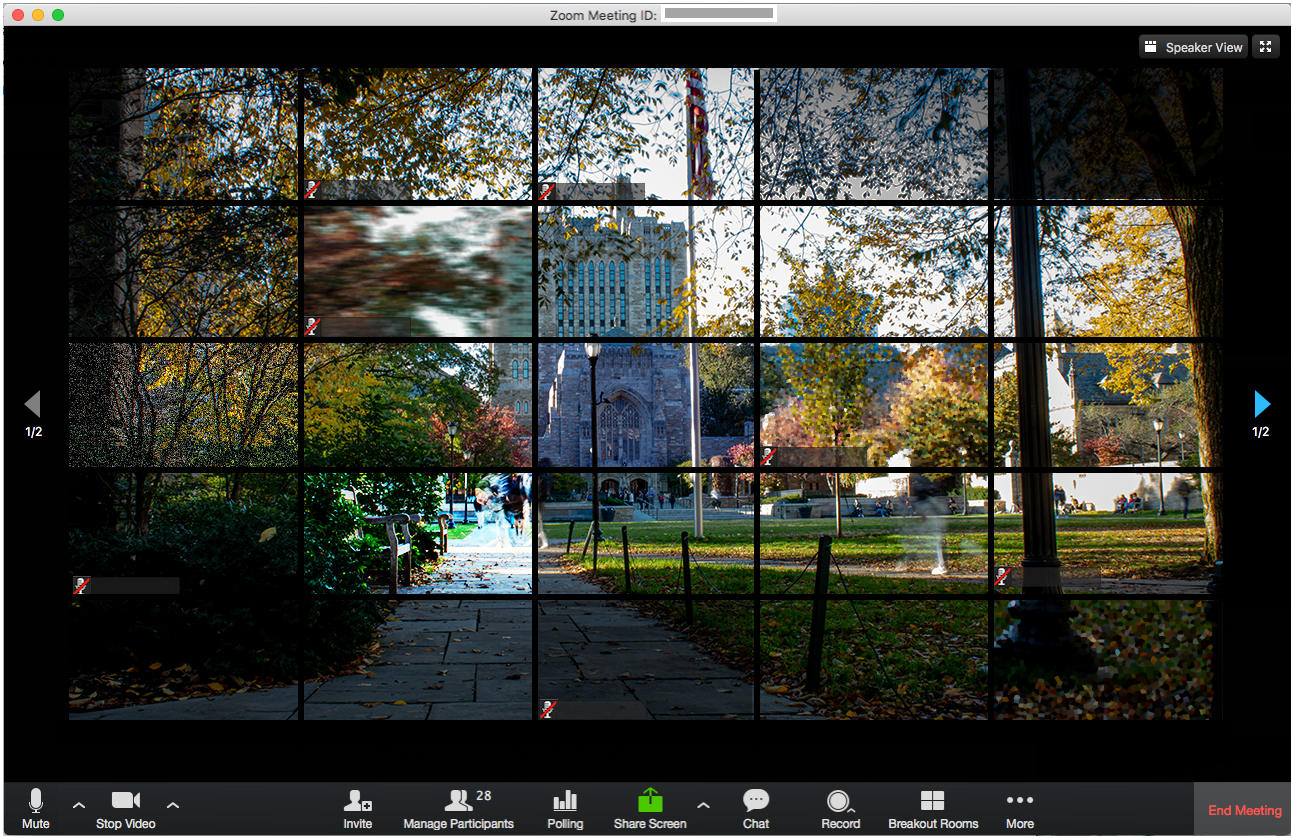Yale Young Global Scholars to remain virtual for third year amid push to include international students
The competitive pre-collegiate academic program, which hosts students from dozens of countries each summer, announced that the 2022 session will take place virtually.

David Zheng, Senior Photographer
A record 2,400 high school students were selected in mid-March to participate in the 2022 Yale Young Global Scholars program — which will take place virtually for the third consecutive year.
Yale Young Global Scholars, or YYGS, is an academic enrichment program where high school students participate in two-week interdisciplinary courses to address pressing world issues. This year’s cohort saw students admitted from 50 U.S. states and 144 countries around the world, with students participating from more nations than ever before, including Lesotho, Liberia and Timor-Leste.
“[YYGS] was founded by academics at Yale who really wanted to bring together students from around the world to be able to learn from each other’s different perspectives,” Zeva Manvi, the associate director of admissions for YYGS, said.
Manvi noted that before the pandemic, program administrators typically took over residential colleges and University classroom spaces to host the program’s diverse array of students — and were preparing to host students on Old Campus before travel restrictions struck in 2020.
In spring 2020, Manvi said, YYGS had already admitted its scholars from the approximately 7,000 student applicant pool when pandemic conditions escalated. Instead of canceling the program, administrators pivoted to an online format after surveying admitted students and families, finding that families wanted YYGS to continue virtually. Respondents said they wanted to see students engage in live rather than recorded lectures, have opportunities to engage with Yale professors and instructors and have access to their fellow scholars through facilitated social activities.
The program implemented that feedback for their 2020 and 2021 courses and plans to continue that model in 2022.
“[YYGS Online] is very similar to what we did on campus,” YYGS Program Director Elena Gosalvez-Blanco said. “We tried to replicate it as much as possible.”
Gosalvez-Blanco expressed her surprise at the widespread success of YYGS online, noting that students “felt like they really [had] come to Yale.” She said that while the virtual program would never fully replicate the in-person experience, students’ feedback had taught program leaders what they needed to do to optimize the adapted YYGS format.
This year, YYGS administrators considered running a hybrid version, with residential and online options, to continue to keep the program accessible for international students. But after speaking to departments across the University and monitoring embassies and consulates across the world, the program’s administrators decided to stay fully virtual.
“It’s very complicated,” Manvi said. “The policies that you can have for risk management and liability when you’re working with undergraduate and graduate students [are] very different than the policies for minors.”
When YYGS administrators were making these decisions in the fall, it seemed that under Yale’s policies for minors, high school students would have been restricted from gatherings and would also lack the opportunity to explore Yale’s campus. Administrators worried that students would not receive the promised in-person experience if they offered an in-person option, they said.
Manvi also noted that U.S. embassies and consulates were having “deep, deep delays” in getting appointments for visas and travel documentation which would restrict the number of international students who could participate in the program in-person. The lack of vaccine equity across the world would also have made it difficult for traveling students to partake of the program, as Yale requires all students living on campus to be vaccinated.
According to Manvi, ensuring equal access to the program was especially important for YYGS because there is generally an upward trend in the number of countries represented by the program each year. Administrators worried that, had the program been in person this year, country representation would have decreased.
In addition to global accessibility, administrators said that the program’s virtual format has increased student engagement.
In one example, Assistant Director of Marketing Melissa Minikowski explained how in pre-pandemic years, crowded lectures by Yale faculty may have hindered student engagement or participation. Virtual environments mitigated these concerns.
“In an online format, it’s actually a lot more streamlined,” Minikowski said. “[Students virtually] can raise their hands … get their questions asked. In a strange way, it’s almost more accessible.”
YYGS administrators, however, acknowledged that while a virtual format has increased participation, it has come with its own set of challenges as well.
Manvi noted that there are “barriers to access” related to internet access, as the virtual format still prevents international students in regions lacking internet from participating. In addition, she noted that in-person recruitment visits to certain geographic regions prior to the pandemic allowed the program to reach students they may not have otherwise.
However, she noted that on balance, holding YYGS online remains an accessible and successful model for pandemic times.
“We’re really proud that we’ve been able to maintain [our] global diversity, which would never have been possible during the pandemic had we not gone online,” Manvi said.
Since its founding in 2001, YYGS has expanded from two sessions with 300 students to 12 sessions with 2,400 students.
Correction, April 4: This article has been updated to reflect Manvi’s title as associate director of admissions.







